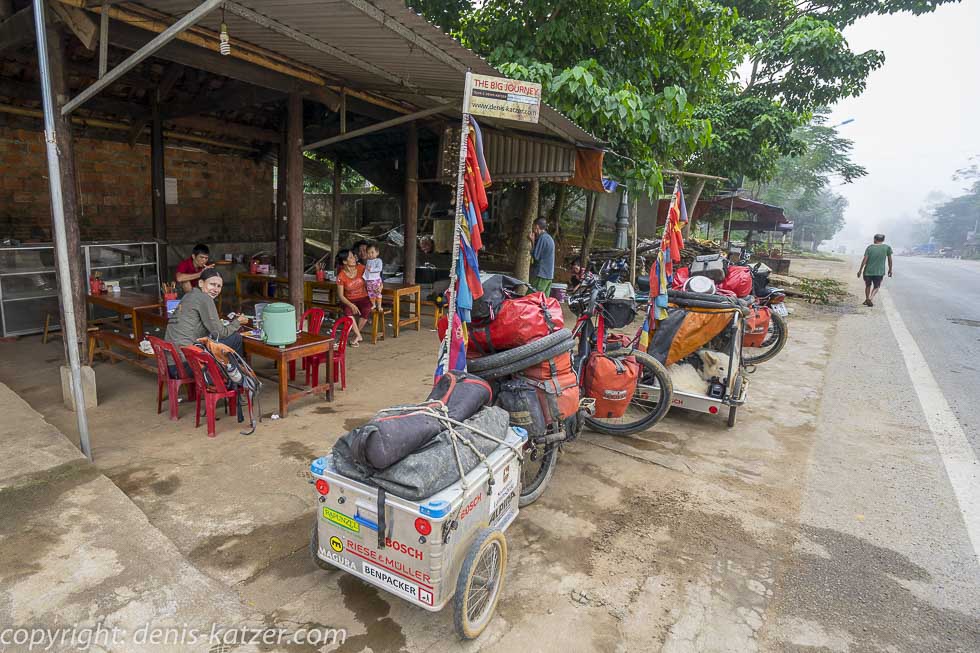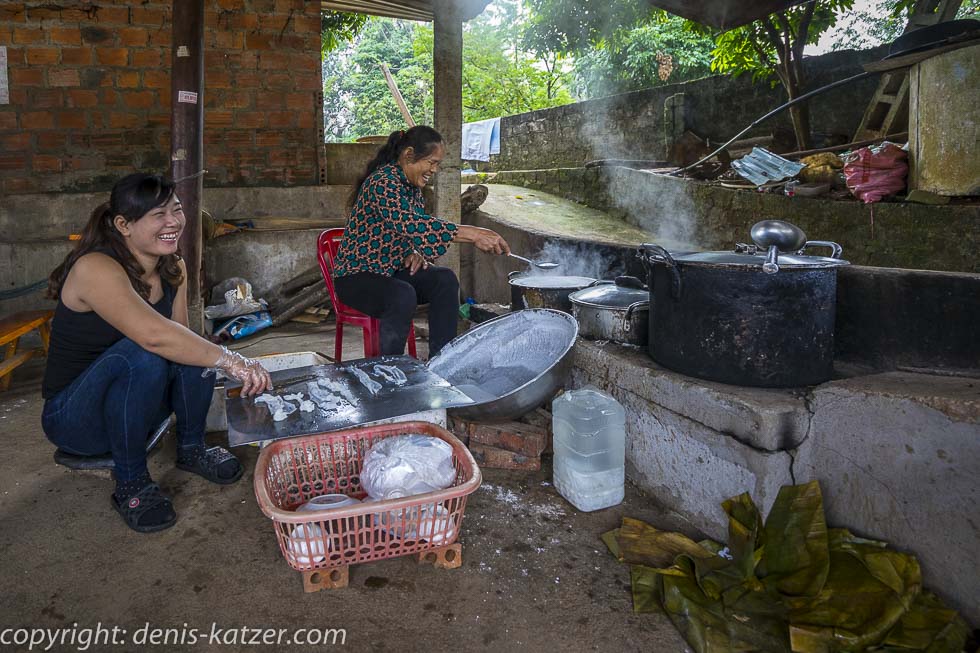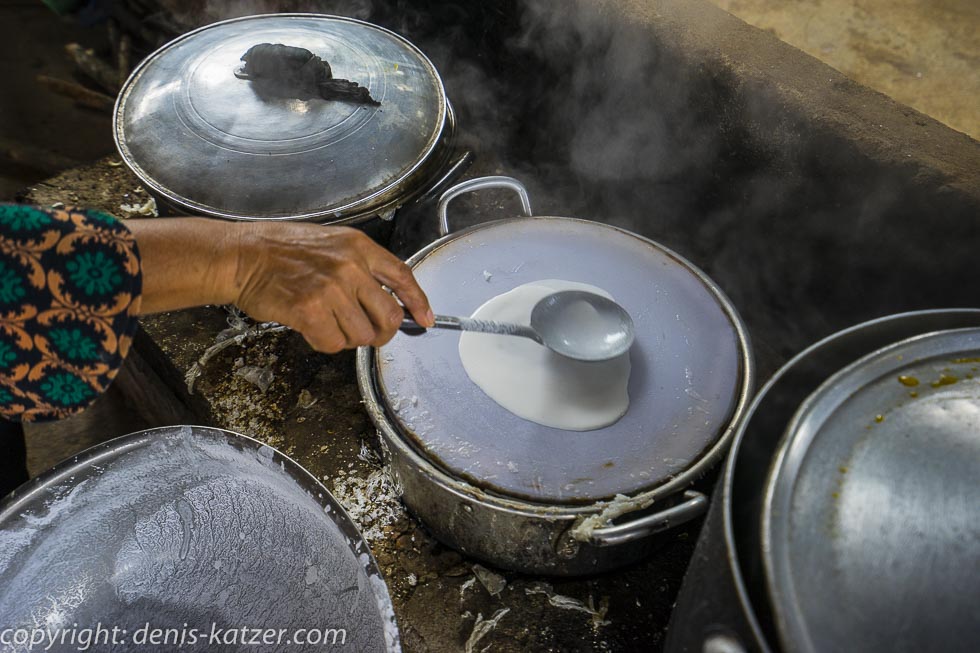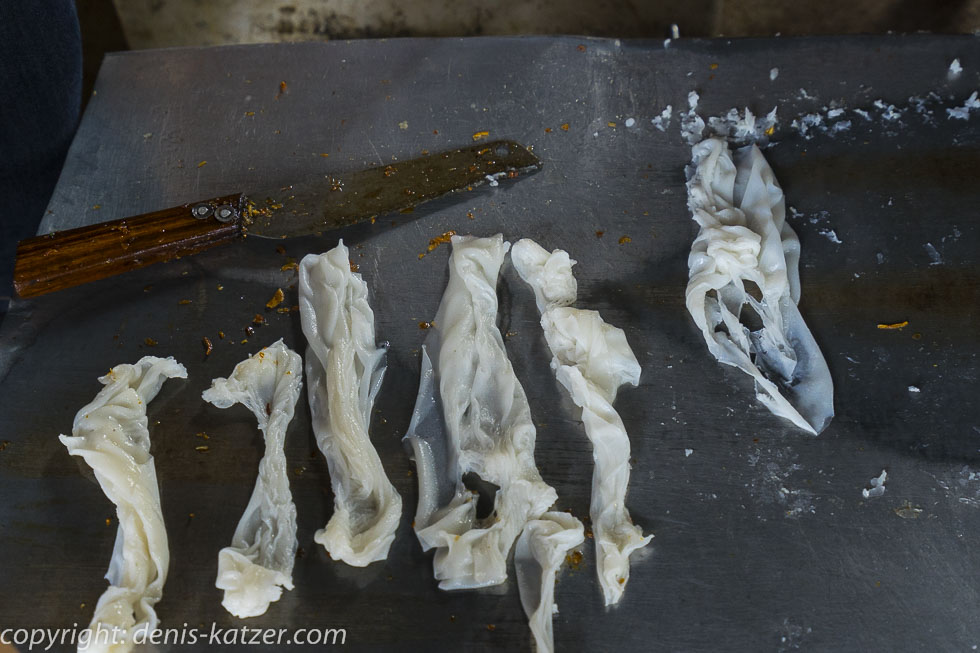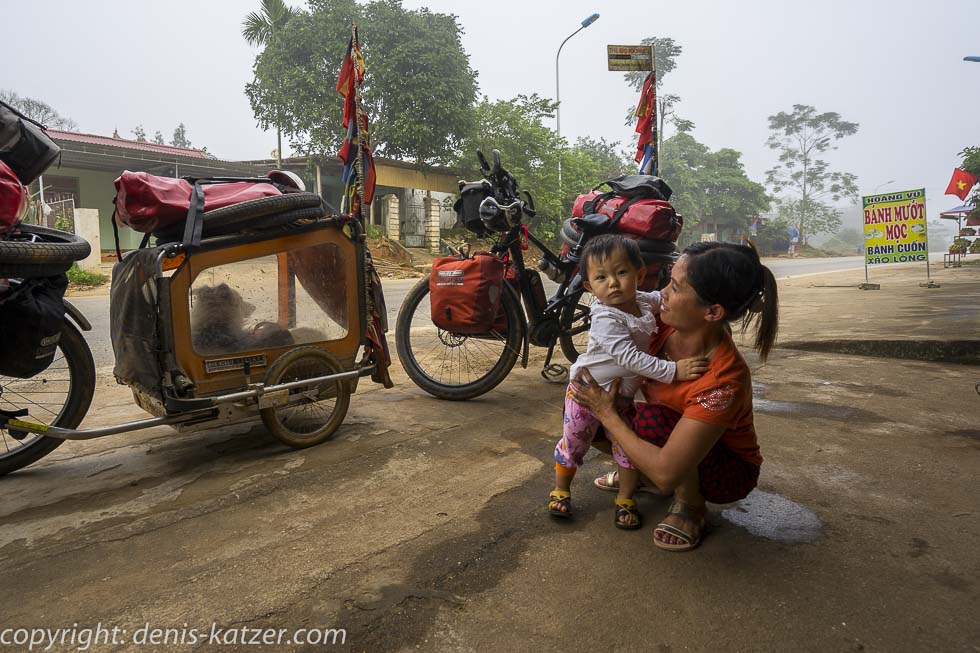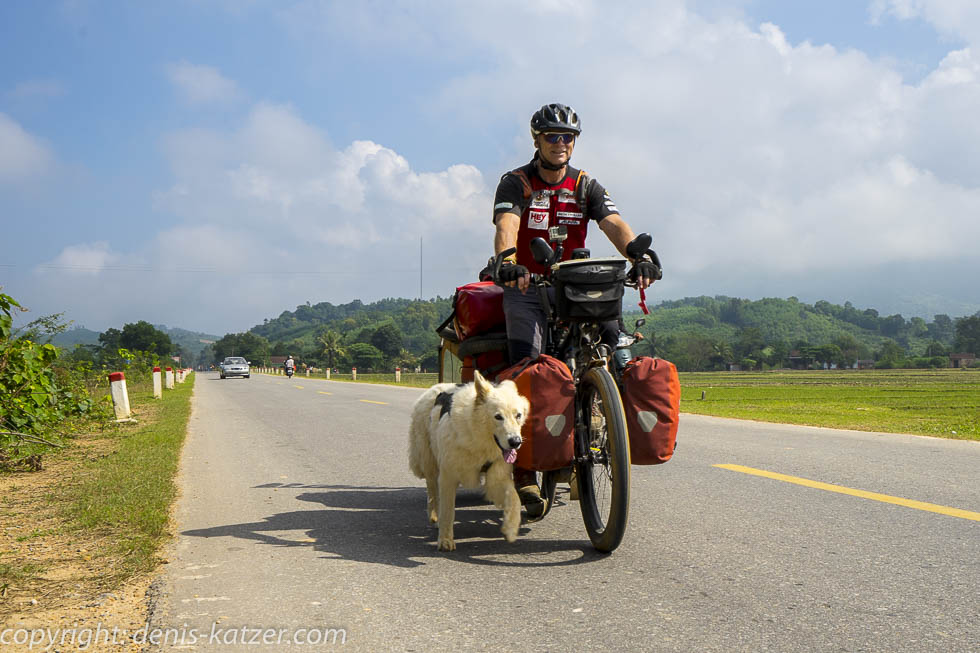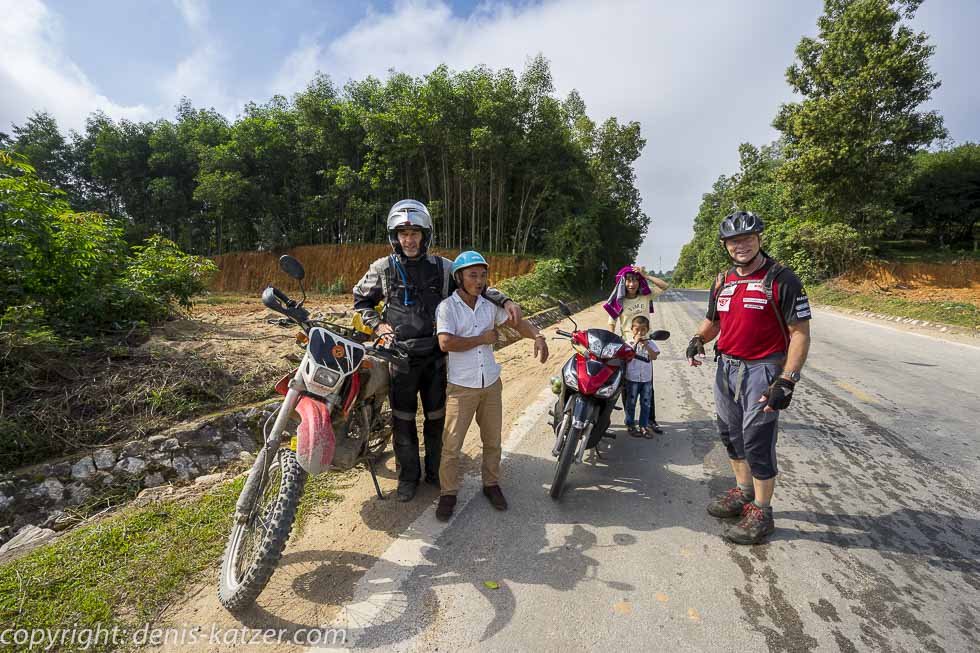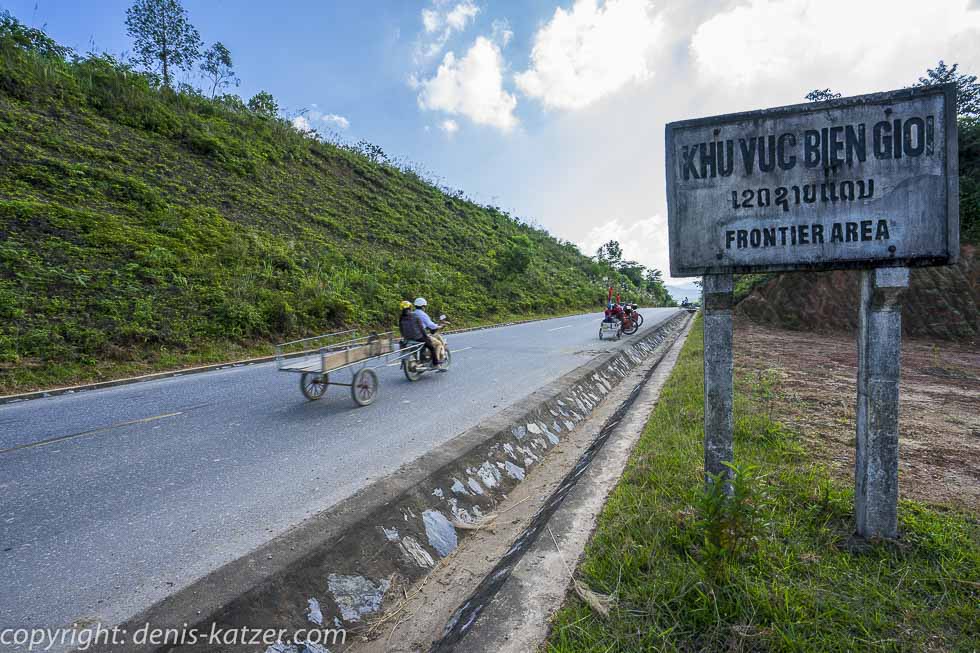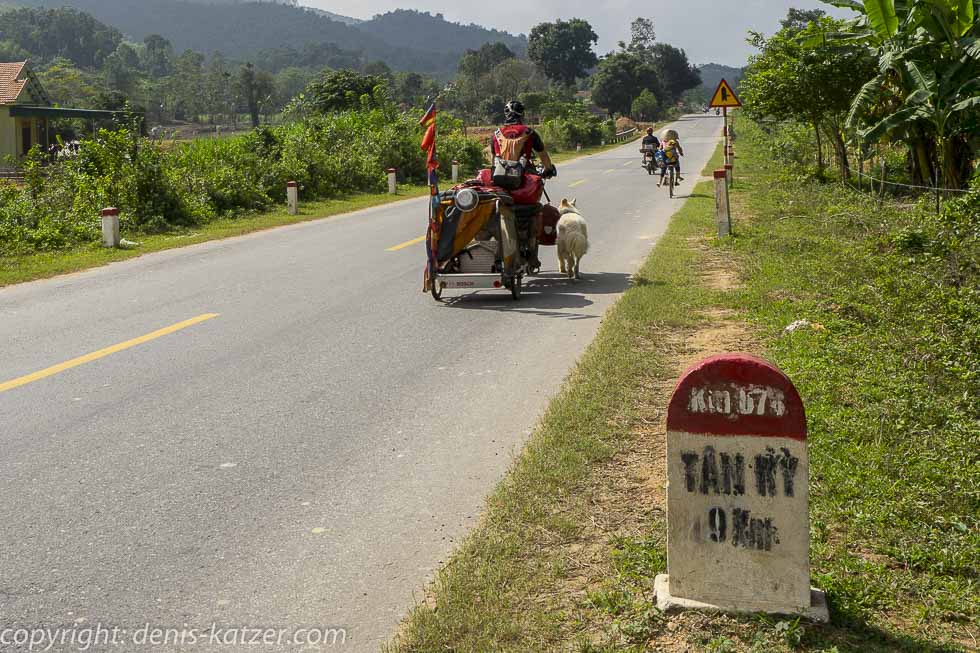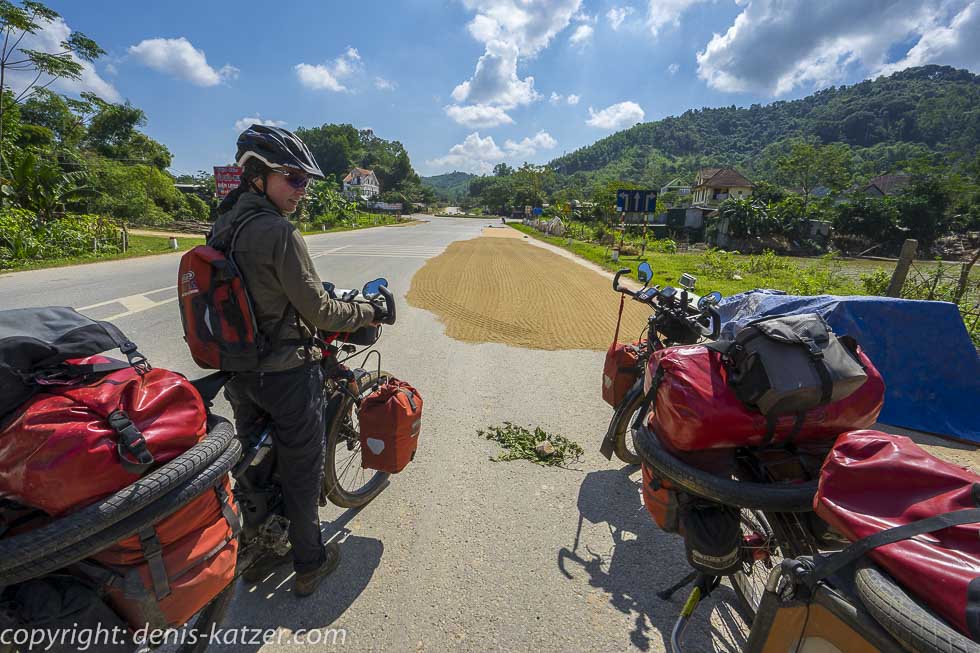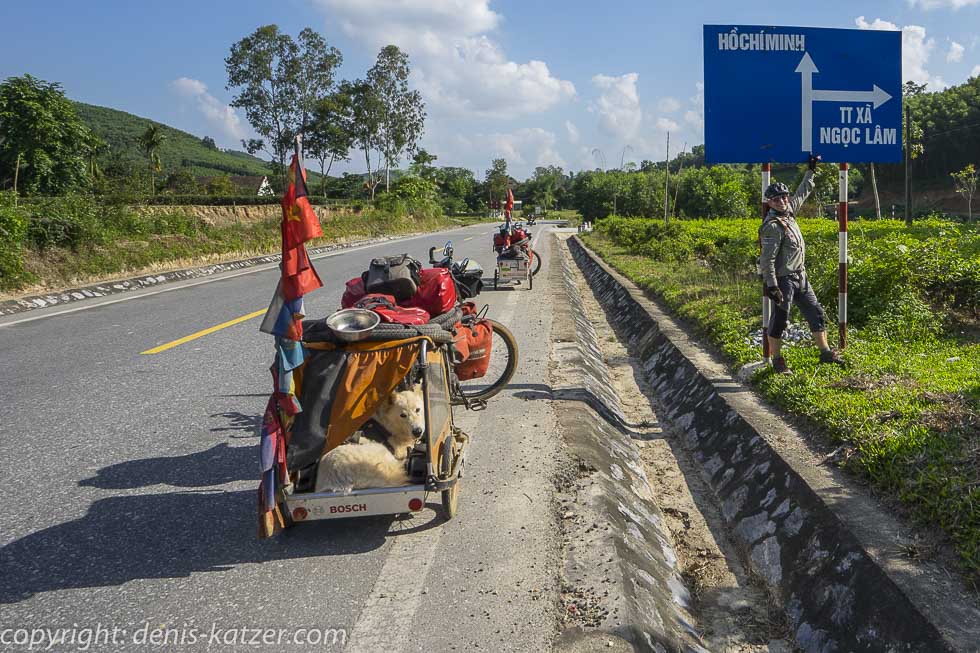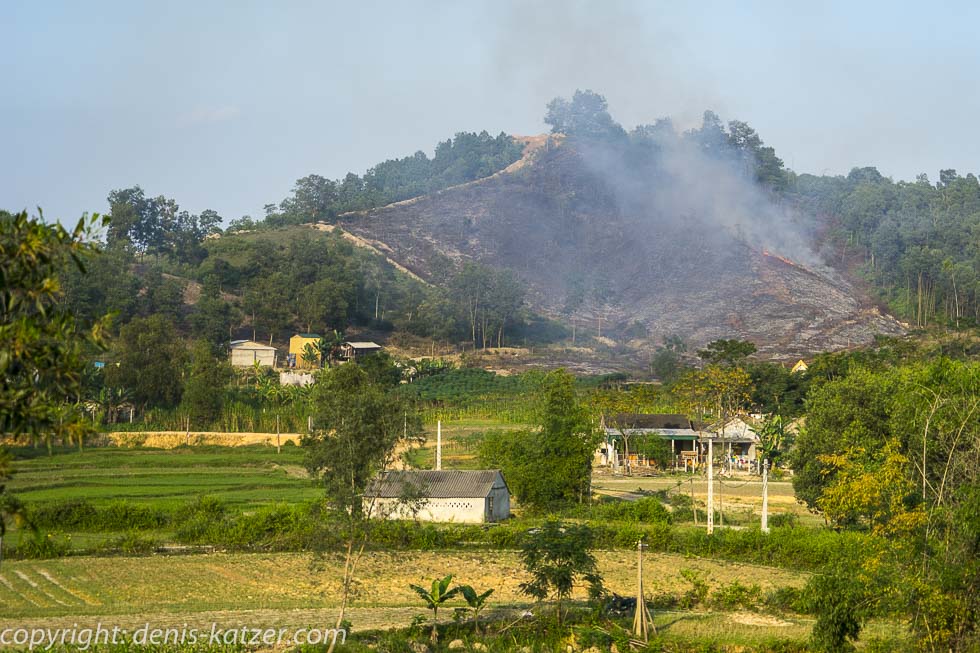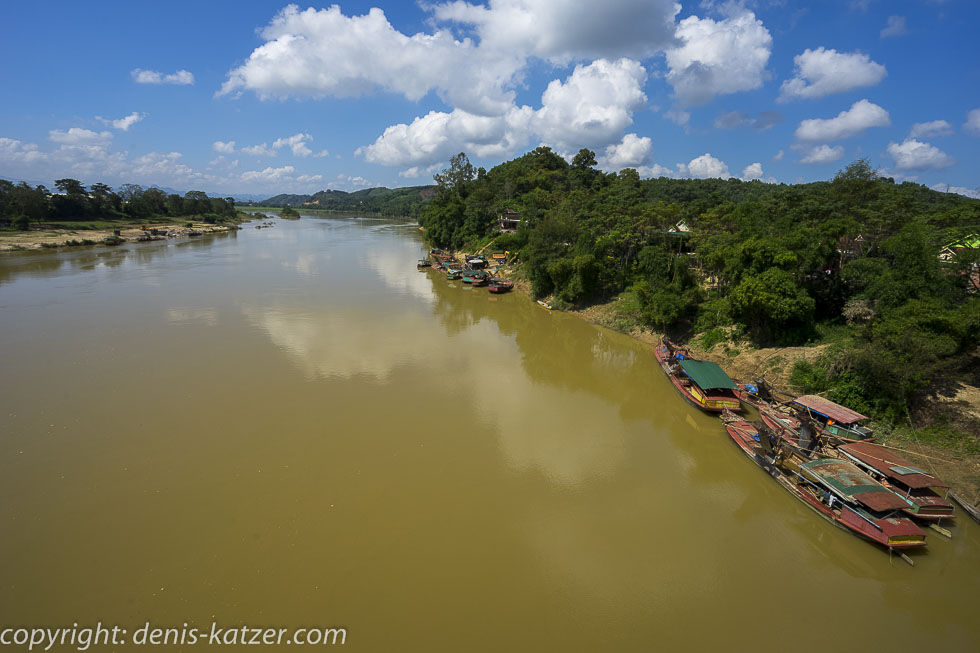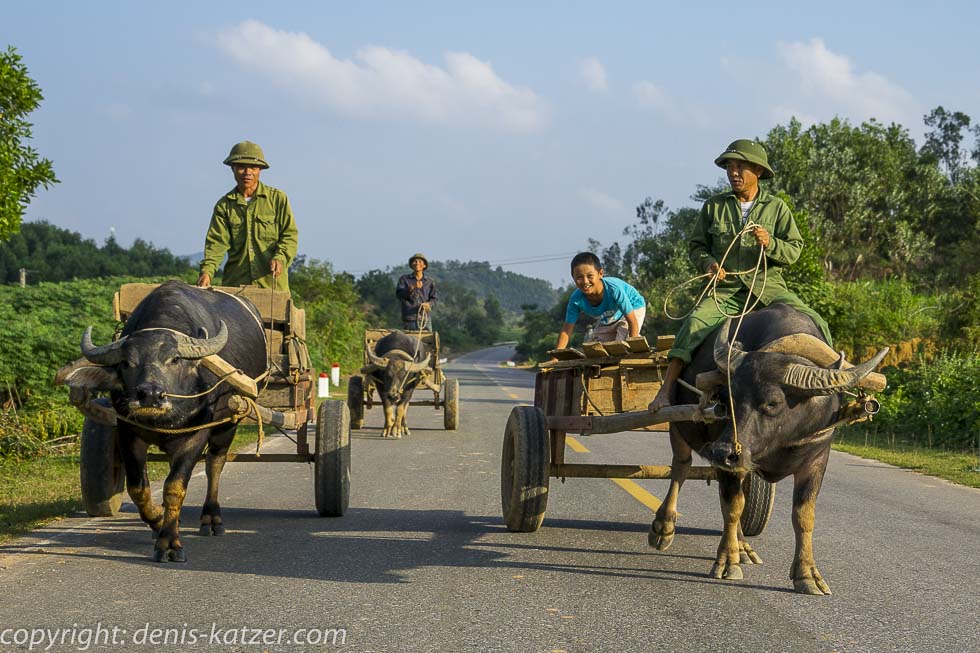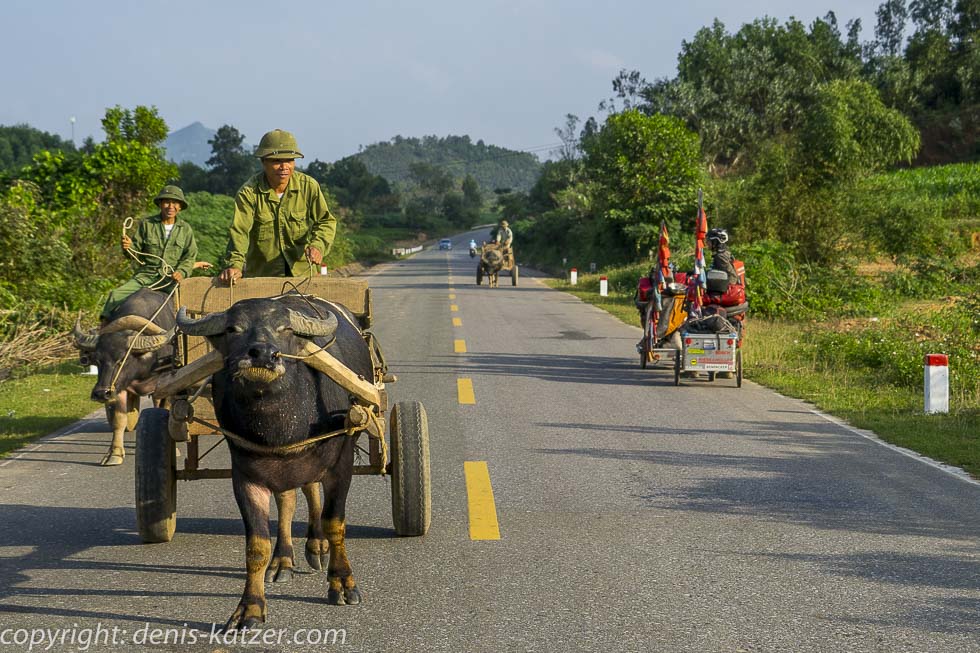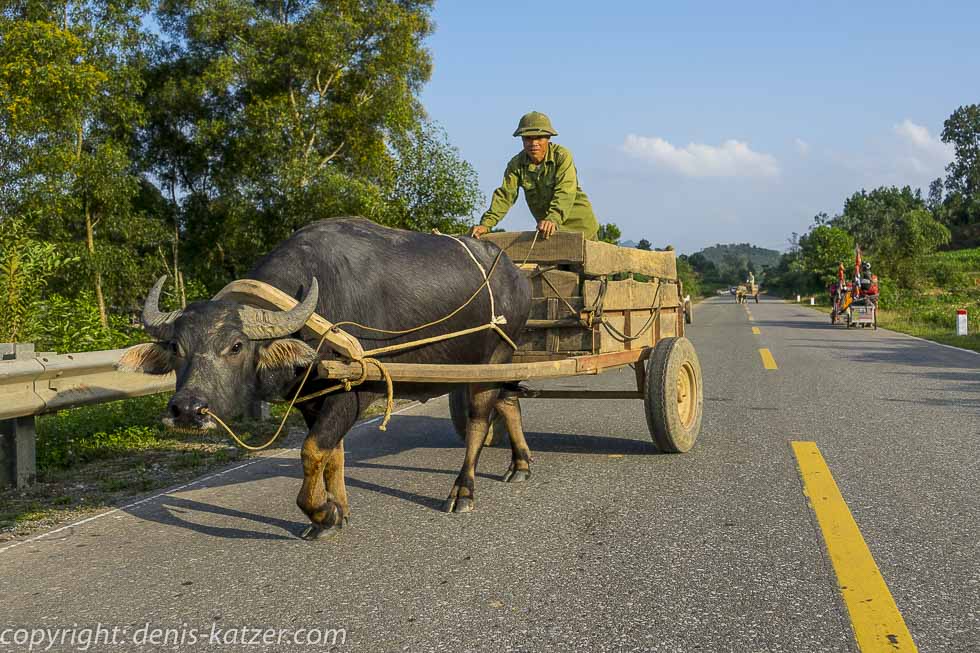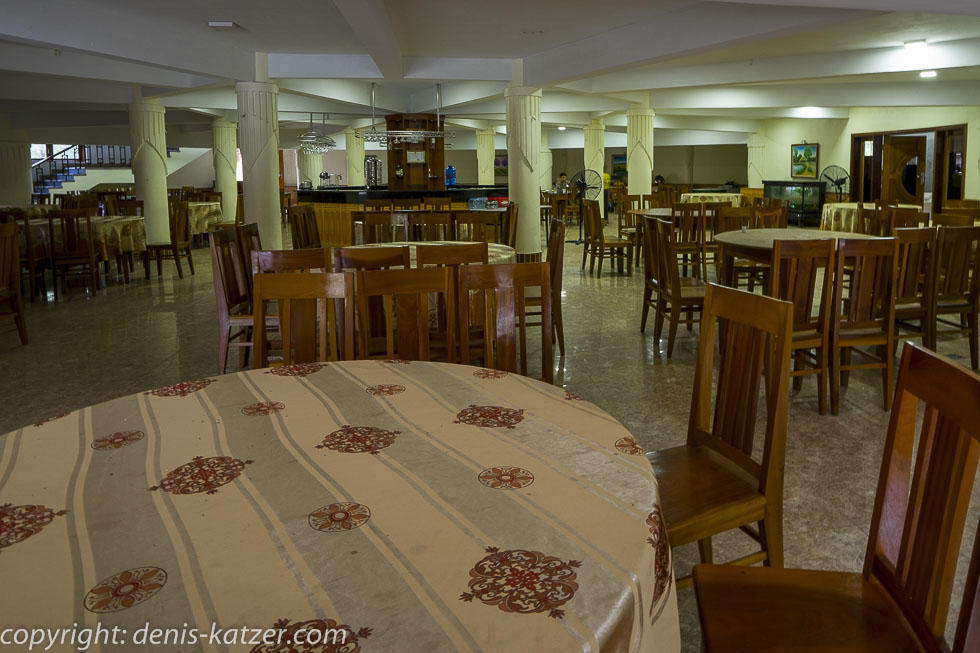
Rice noodles, warplane and Ajaci’s reference book
N 18°32'08.4'' E 105°25'54.5''
Date:
16.11.2016
Day: 509
Country:
Vietnam
Province:
Hà Tĩnh
Location:
Pho Chau
Latitude N:
18°32’08.4”
Longitude E:
105°25’54.5”
Daily kilometers:
128 km
Total kilometers:
20,727 km
As the crow flies:
84 km
Average speed:
24.6 km
Maximum speed:
54.7 km/h
Travel time:
5:07 hrs.
Soil condition:
Asphalt
Maximum height:
120 m
Total altitude meters:
57.005 m
Altitude meters for the day:
800 m
Sunrise:
06:05 a.m.
Sunset:
5:20 pm
Temperature day max:
28°C
(Photos of the diary entry can be found at the end of the text).
“It’s going to be exhausting today,” I say. “Why?” Tanja wants to know. As far as I can tell, there’s no accommodation for the next 130 to 150 km.” “I don’t think so. There will always be a homestay or small roadside hotel to be found.” “Maybe you’re right, but we should have a hearty breakfast just in case,” I suggest, which is why we stop at a simple shelter to eat rice noodles as soon as we leave the motel. We sit down on two low plastic chairs, which are undoubtedly more suitable for children than adults. “I’d be really interested to know why the Vietnamese love these children’s chairs and tables so much,” I ask, as almost every small street restaurant is equipped with them. “They are small people too.” “They are small but not dwarves and only dwarves would feel comfortable on these stupid children’s chairs,” I reply, because it would be no problem for a European of normal height to bite his own knees in this squatting position.
Waiting for our rice noodles, we watch the two giggling cooks sitting in front of a low-walled earth oven in which a wood fire crackles. Three large pots, which, judging by their pitch-black patina, have been sitting on the fire for years, are moved back and forth from time to time. The cook uses a ladle to pour liquid rice porridge onto the shallow pot lid, under which water boils. This prevents the rice porridge, which sets quickly, from burning. Then she scrapes the firm rice dough from the lid and cuts it into strips. Place the finished rice noodles in a bowl and pour over the broth enriched with coriander, Thai basil, lime juice and bean sprouts, which is simmering in another pan. It is usually served with chicken or beef and is one of the most famous Vietnamese dishes. Phở gà (chicken soup) or Phở bò (beef soup). We say “Xin vui lòng không có thịt” (no meat please) because Tanja is a vegetarian and I only eat meat if I know that the animal didn’t suffer.
Well-fed, we say goodbye, get on our bikes, leave the small village behind us and follow the Ho Chi Minh Highway. The weather is kind to us today. With an almost blue sky and 28 degrees, it’s a pleasant day on the bike. There are gentle hills to the left and right of the tarmac. The jungle is burning on some of them. It looks like it will have to make way for new cultivation areas. We drive through a cloud of smoke. Then the view of the lovely landscape is clear again.
A motorcyclist comes towards us. When he notices us, he stops. We also brake, put our roadtrains on the stands and chat for a while. “And you drove all the way from Germany to here?” asks Steve from England, who is driving through Vietnam on an off-road machine for four weeks. “Yes,” we reply and answer his questions about the itinerary. “I’ve already been to Germany a few times and will be back next year. So far, I’ve tracked down the families of three crew members of a German warplane.” “Crew members?” I ask. “Yes, after years of searching and endless dives, I discovered a lost German Focke-Wulf Fw 200 bomber in a lake. It’s a hobby of mine. Do you understand? After a lot of research, I found out the names of the crew, visited their descendants in Germany and told them where their relatives had died. Even though it was very late, the German families were very happy to receive the information. Now I’m only missing one family. But there are so many Meier families in East Germany that it won’t be easy to find the pilot’s relatives.” After 20 minutes of exciting conversation, we say goodbye to each other. “We still have a long way to go today,” I apologize to Steve, who would like to swap stories for longer.
We glide along in turbo mode, which we have also been calling happiness mode for some time now. At the roadside, farmers spread their rice on the asphalt, which is dried by the sun in this way. Weathered road signs indicate that we are in the border region of Laos. In the warm light of the low sun, three powerful water buffaloes come towards us, pulling heavy wooden carts behind them. Farmers sit on the backs of the respectful animals and wave to us in a friendly manner. As we drive past each other, we marvel at each other. High-tech from Germany meets a dying Vietnamese means of transportation. “Xin chào! Xin chào! Xin chào!”, we greet each other.
In the corner of my eye, I spot a large swimming pool. “Looks like an expensive hotel! Will they take bikes and a dog?” I call out to Tanja. “It depends on what you try!” Although I am sure that such a noble shed will not take us in, we ride through the huge entrance portal and wave to the guards. After 128 kilometers, we park our bikes next to a 100,000 euro off-road vehicle. “I’m very sorry. We don’t take dogs,” says the receptionist. “Can you please call your manager and ask again,” Tanja persists. Because it’s already 4:30 p.m. and the sun will set in 50 minutes at the latest, I’m a little tense. “I don’t know if it’s worth the wait. Paul has warned us that there is only one run-down place to stay for the next 160 kilometers. We need daylight to find a campsite for us,” I say, stepping from one foot to the other. 10 minutes later, the receptionist hands her smartphone to Tanja. “And your dog doesn’t bite the furniture?” “Our Ajaci would never do that.” “And he doesn’t pee in the room?” “Never!” “Does your dog bite our staff or other guests?” “But no. He’s as lovable as a lamb.” “But surely he barks quite loudly?” “Ajaci only barks on command, otherwise he’s as quiet as a purring cat.” “And you don’t let him sleep in the bed?” “Absolutely not. He has his own bed,” Tanja answers patiently. “Good, I’ll speak to the owner of the resort and call you back as soon as I can.” Another 10 minutes later, a young woman appears. She is the manager’s right-hand woman. “Good afternoon,” she greets us. “Your dog is huge,” she says, friendly but startled. “Big but very obedient,” Tanja replies and shows her Ajaci’s reference book in which Chinese and Vietnamese hotel managers and owners have praised him. “Looks like he is an unusual dog?” (Looks like he is an unusual dog) “He is”, Tanja and I say as if from the same mouth. “Okay you can stay”, we hear and are relieved. For only 380,000 Dong (15.98 €) we get incl. Breakfast in a beautiful, clean room with a view of the hotel’s own park. We take off our dirty cycling clothes, take a quick shower and hurry to the pool as darkness falls. As the only guests at the resort, we take a refreshing dip in the water. Then we go to the dining room, which really deserves to be called a dining room because of its size and uncomfortableness. Here, too, we are the only guests. “Where are the 300 boarders who could easily dine here?” I ask the waitress with a laugh. Unfortunately the restaurant staff don’t understand a word of English, which is why I don’t follow up my question and try to order something to eat for us…
If you would like to find out more about our adventures, you can find our books under this link.
The live coverage is supported by the companies Gesat GmbH: www.gesat.com and roda computer GmbH http://roda-computer.com/ The satellite telephone Explorer 300 from Gesat and the rugged notebook Pegasus RP9 from Roda are the pillars of the transmission. Pegasus RP9 from Roda are the pillars of the transmission.
